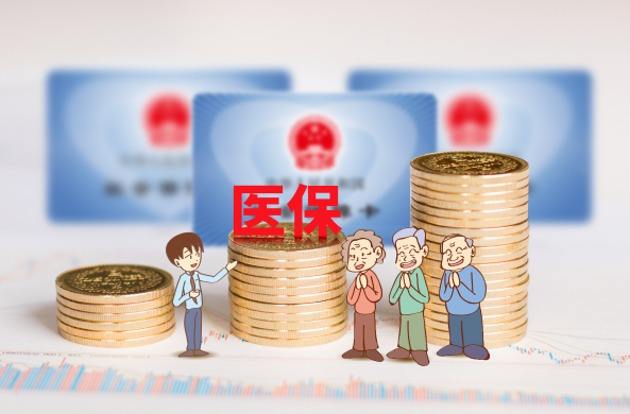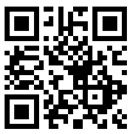A new round of medical insurance negotiations is about to start, and 20 innovative drugs may participate in the negotiations for the first time
- Categories:Industry News
- Author:
- Origin:
- Time of issue:2022-01-21
- Views:0
(Summary description)According to reports, the 2021 national medical insurance negotiation will start on November 9 and end on November 11. The negotiation will last for three days. With the launch of a new round of medical insurance negotiations, which blockbuster new drugs will receive tickets to the medical insurance catalogue have attracted much attention.
A new round of medical insurance negotiations is about to start, and 20 innovative drugs may participate in the negotiations for the first time
(Summary description)According to reports, the 2021 national medical insurance negotiation will start on November 9 and end on November 11. The negotiation will last for three days. With the launch of a new round of medical insurance negotiations, which blockbuster new drugs will receive tickets to the medical insurance catalogue have attracted much attention.
- Categories:Industry News
- Author:
- Origin:
- Time of issue:2022-01-21
- Views:0
According to reports, the 2021 national medical insurance negotiation will start on November 9 and end on November 11. The negotiation will last for three days. With the launch of a new round of medical insurance negotiations, which blockbuster new drugs will receive tickets to the medical insurance catalogue have attracted much attention.
Since 2016, my country has held a round of medical insurance negotiations every year. At present, medical insurance negotiation has become an important catalyst for the volume of innovative drugs. Judging from the experience of the previous rounds of medical insurance negotiations, after most innovative drugs entered medical insurance, they achieved a substantial increase in the amount in a short period of time by exchanging price for volume. In this context, domestic innovative drugs are accelerating their advance to the medical insurance catalog.
There are many "star drugs" involved in this negotiation. Among them, PD-1 is still the focus, and domestic PD-1 will participate in the negotiation with new indications on November 10; there are about 20 domestic innovative drug varieties or will be negotiated for the first time in this negotiation, including the price of one million yuan / The second CAR-T therapy, the first domestically developed ADC drug, etc., the negotiation results are worth looking forward to.
The medical insurance negotiation is known to the public because of "soul bargaining". The advent of a new round of medical insurance negotiation has made the market expect that innovative drugs will usher in a price battle. As far as we know, innovative pharmaceutical companies are worried that the market may misunderstand the price negotiation, and the market's expectations on the price of medical insurance may be too pessimistic. Therefore, whether there will be "soul bargaining" this year may be an indicator to observe.
20 innovative drugs may participate in negotiations for the first time
Institutional data shows that about 20 domestic innovative drug varieties may be negotiated for the first time this time, including PARP inhibitors, BTK inhibitors, ALK inhibitors, ADC drugs (antibody conjugated drugs), CAR-T therapy (chimeric antigen therapy) Receptor T cell immunotherapy), etc., involving many listed pharmaceutical companies such as Hengrui Medicine, BeiGene, Rongchang Bio, Betta Pharmaceuticals, and Zejing Pharmaceuticals.
According to the companies they belong to, in this medical insurance negotiation, Hengrui Medicine, BeiGene, Rongchang Bio, and Chi-Med Pharmaceutical have 2 innovative drugs that are eligible to participate in the national medical insurance negotiation for the first time. Betta Pharmaceuticals, Hansen Pharmaceuticals, Fosun Kate, Nuocheng Jianhua, Haisco, Zejing Pharmaceutical, Simcere, Alys, CStone, Aidi Pharmaceutical and other companies have 1 innovative drug eligible to participate in the negotiation for the first time.
In terms of disease fields, among these 20 varieties, 12 are innovative anti-tumor drugs, of which 3 are for hematological tumors; the other 4 are anti-infective drugs, metabolic disease drugs, autoimmune disease drugs, and blood disease drugs , 1 type of anesthetic.
In terms of varieties, the medical insurance negotiation involves mainly small-molecule TKIs, and also involves a number of innovative drugs in the form of new drugs, such as BeiGene's CD3/CD19 double-antibody belintoumumab, Rongchang Bio's HER2 ADC Vidicitumumab, Fosun Kite's CD19 CAR-T therapy Achilles.
The competition pattern of some varieties is relatively good
Among these 20 varieties, some varieties have a relatively good competition pattern and are quite scarce. After being included in the medical insurance, it is expected to accelerate the increase in volume and seize the market through the driving of medical insurance.
For example, currently in the domestic market, only 3 BTK inhibitors have been approved for marketing, namely Johnson & Johnson's ibrutinib, BeiGene's zanubrutinib, and Nuocheng Jianhua's orelabrutinib. The inhibitor is still in the early stage of development, and it is not expected to have an impact on the existing market structure in a short period of time.
Among them, Orbrutinib will participate in the negotiation for the first time. Previously, Tong Shaojing, chief financial officer of Nuocheng Jianhua, told reporters that last year, the renewal of ibrutinib medical insurance and the new medical insurance of zanubrutinib had obtained satisfactory prices. The price is included in health insurance.
Among the PARP inhibitors, a total of 4 products have been approved for marketing in China, namely AstraZeneca's olaparib, Zai Lab's niraparib, Hengrui's fluzoparib, and BeiGene's Pamir parley. Among them, the first two new indications participated in the negotiation, and fluzoparib and pamiparib entered the primary list for the first time. Essence Securities predicts that in the medical insurance negotiation in 2021, the price reduction rate of PARP inhibitors will vary with the variety. Profits fell by 45%-55%.
Among the ALK inhibitors, 4 have been approved for marketing in China, namely Pfizer's crizotinib (first-generation), Roche's alectinib (second-generation), Novartis' ceritinib (second-generation) and Betta medicine industry's ensatinib (second generation). Among them, alectinib will expire on December 31, 2021, and this time, it will participate in the negotiation of contract renewal; Betta Pharmaceuticals is shortlisted for the first time. Essence Securities estimates that Ensatinib is expected to drop by 60%-65% this time.
In terms of third-generation EGFR-TKIs, three varieties of Hansoh’s almetinib, Allis’ fumetinib and AstraZeneca’s osimertinib have been approved for marketing in China. Among them, the new indication of osimertinib for the adjuvant treatment of EGFR-sensitive mutation non-small cell lung cancer participated in the negotiation, and the approved second-line treatment indication of fumetinib participated in the negotiation for the first time. At present, the annual treatment cost of fumetinib (without the donated drug) is about 417,000 yuan, and the annual treatment cost after the donated drug is about 209,000 yuan. Essence Securities expects the price reduction of fumetinib to be 60%-70%.
In terms of HER2-ADC, at present, only Rongchang Bio's Vidicitumumab and Roche's Enmetrastuzumab have been approved for marketing in China. Essence Securities predicts that the domestic HER2-ADC competition will be good in the short term, and the only approved domestic variety may only drop to the same level or slightly lower than that after charitable aid, and the price reduction is expected to be 50%-60%.
In terms of CAR-T therapy, currently only 2 models have been approved in China, including Fuxing Kite's Achilles, which will be launched in June 2021, and WuXi's Noricy Orenx, which will be launched in September 2021. Among them, Achilles It will enter the national talks at a high price of 1.2 million yuan per time.
In this regard, some institutions said that from the perspective of the degree of inclusion of tumor drugs in the previous rounds of medical insurance negotiations, the price reduction of Achilles is worthy of attention; however, some analysts believe that due to the high cost, it is expected that its price will be greatly reduced. The possibility of entering medical insurance lower.
The competitive landscape of PD-1 is relatively moderate
The price change of PD-1 monoclonal antibody has attracted the most attention in the national medical insurance negotiation in recent years. According to reports, the PD-1 monoclonal antibody negotiation will be held on November 10.
At present, there are a large number of PD-1/PD-L1 mAbs that have been approved for marketing in China, a total of 10 have been approved for marketing, and many PD-1/PD-L1 mAbs are in the stage of marketing application. In the previous talks between the two countries, all imported products were wiped out, and four domestic PD-1 mAbs suffered "ankle cuts", and the price dropped by about 60%-80%. At present, the annual cost has dropped due to the charitable drug donation policy. to the range of 30,000-80,000 yuan.
However, the newly approved PD-1 varieties are not eligible to participate in this medical insurance negotiation because they were approved later than the medical insurance negotiation time limit. Therefore, the PD-1 varieties participating in this medical insurance negotiation are the same as in 2020. All newly approved indications can participate in the negotiation. Relatively speaking, in this negotiation, the competition pattern of domestic PD-1 varieties is relatively relaxed.
Guosheng Securities believes that the inclusion of major indications in medical insurance can effectively increase the penetration rate of PD-1 immunotherapy, and a reasonable price reduction will be conducive to further expansion of the PD-(L)1 market.
Essence Securities estimates that the enthusiasm for imported varieties to participate in this negotiation is low, and the overall decline of domestic PD-1 mAbs is controllable, which may be around 10%-20%. In addition to the low enthusiasm of foreign companies, and due to the relatively moderate competition pattern of domestic PD-1 mAbs, the two recently approved domestic PD-1 mAbs have not been included in the scope of this national talk, and companies need to reserve a certain amount for next year's national talks. There is room for price reduction, and it is expected that PD-1/PD-L1 mAbs will face fierce competition in the medical insurance negotiation in 2022.
Innovative drugs usher in high volume opportunities
For innovative drug companies, medical insurance negotiation has become an important catalyst for product volume.
Judging from the experience of the previous rounds of medical insurance negotiation, most innovative drugs have achieved a substantial increase in the amount in a short period of time by exchanging price for volume after entering medical insurance. In addition, after the innovative drug enters the medical insurance, the difficulty of entering the hospital can also be alleviated, and the rapid penetration of hospitals and pharmacies can be achieved.
According to the "Blue Book on the Progress and Effectiveness of Medical Insurance Drug Management Reform" issued by the Chinese Pharmaceutical Association and the China Medical Insurance Research Association, among the 34 innovative drugs launched from 2016 to 2020, 26 drugs have entered the medical insurance catalog, accounting for 76.5% of the total. %. The time from the launch of innovative drugs to the inclusion of medical insurance has also been greatly shortened. In 2017, it took 4 to 9 years for new drugs to go from market to medical insurance. year.
According to the "2021 National Medical Insurance Drug Catalog Adjustment Work Plan" issued by the National Medical Insurance Administration, this catalog adjustment will be completed before the end of this year, and strive to be implemented in January 2022.
For the secondary market, since the beginning of this year, the innovative drug sector has undergone a relatively large adjustment. At present, many securities companies have said that they have "entered the reasonable valuation range". With the implementation of medical insurance negotiations, the emotions caused by the policy are expected to be gradually digested.
(Source: Pharmaceutical Network)
Scan the QR code to read on your phone
Related News
Guangdong Otsuka Pharmaceutical Co., Ltd.
Hotline:
0757-28305861
Copyright © 2021 Guangdong Otsuka Pharmaceutical Co., Ltd. 粤ICP备09154721号 Powered by www.300.cn



 0757-28305861
0757-28305861


 WhatsApp
WhatsApp
